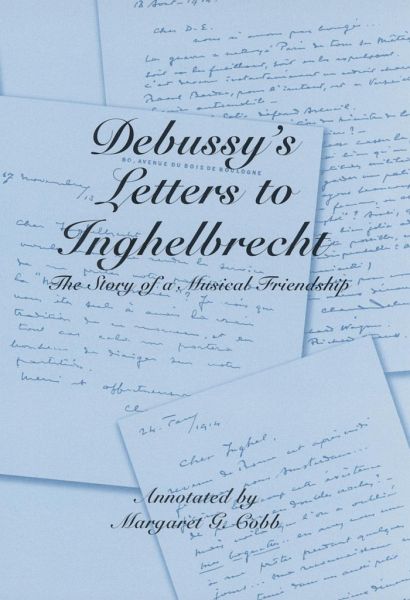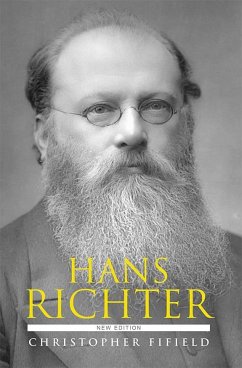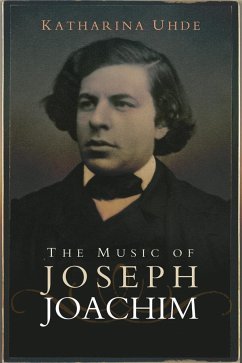Nicht lieferbar

Debussy's Letters to Inghelbrecht
The Story of a Musical Friendship
Herausgeber: Cobb, Margaret G / Übersetzer: Miller, Richard
Versandkostenfrei!
Nicht lieferbar
Disiri-Emile Inghelbrecht was a conductor, and composer. His friendship with Claude Debussy began in 1911 (although they had met previously), and he soon became one of the Master's closest friends. This book is the first publication, in the original French and in English translation, of the correspondence between these two musicians. Beginning rather formally in 1912, with the salutation "Mon cher Inghelbrecht," the correspondence soon became much more intimate, with Debussy addressing Inghelbrecht as "Mon cher ami" or "Cher Inghel." Although Debussy had a reputation for being cold and distant...
Disiri-Emile Inghelbrecht was a conductor, and composer. His friendship with Claude Debussy began in 1911 (although they had met previously), and he soon became one of the Master's closest friends. This book is the first publication, in the original French and in English translation, of the correspondence between these two musicians. Beginning rather formally in 1912, with the salutation "Mon cher Inghelbrecht," the correspondence soon became much more intimate, with Debussy addressing Inghelbrecht as "Mon cher ami" or "Cher Inghel." Although Debussy had a reputation for being cold and distant and for avoiding strangers, this was just his way of maintaining his privacy. This aloofness enabled him to express in private the warmth he felt toward those few close friends whose intimacy he needed and cherished. Inghelbrecht was in the forefront of this group. Their friendship was based not only on a mutual respect for each other's talents as artists and musicians, but also on the sharing of intimate secrets and warm feelings. Inghelbrecht's wife would later write that her husband retained the mark Debussy left on him. "For him, he was a beacon, a guide. And he had the deep joy of being able, up until his last days, to bring to life-with passion, with all his talent-the works of a man who had been for a few years his friend." Margaret G. Cobb, the "doyenne of Debussy scholars," brings to life these two talented men. She enriches Richard Miller's idiomatic translation of the letters with copious notes and wonderful illustrations to illuminate a great musical friendship. Margaret G. Cobb is also the author of The Poetic Debussy, available from the University of Rochester Press. In 2002 she wasawarded the title of Officier de l'Ordre des Arts et des Lettres by the French Government's Ministhre de la Culture et de la Communication.













